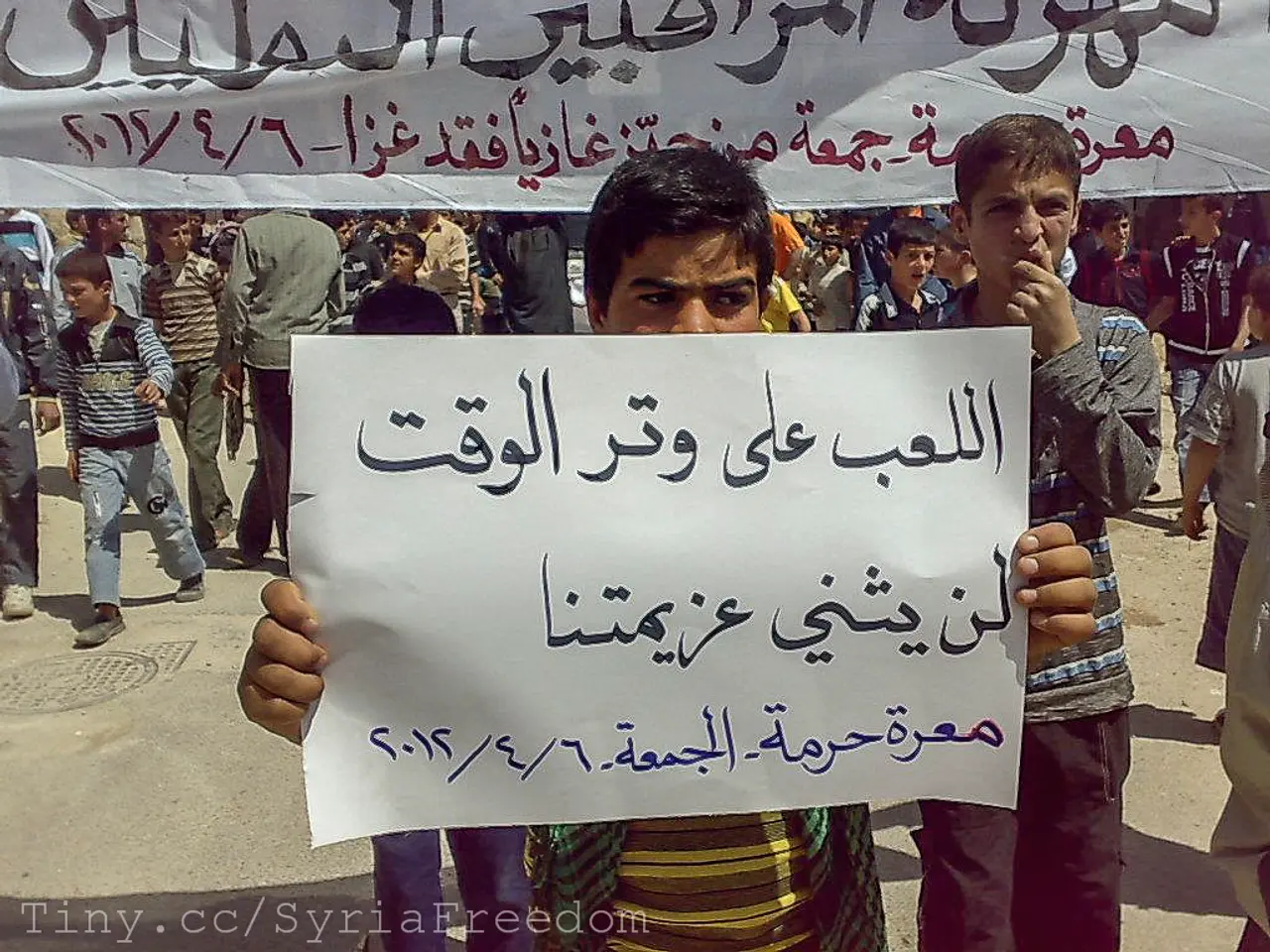A significant number of Non-Governmental Organizations make an appeal for Israel to halt the usage of humanitarian assistance as a form of weaponry within the Gaza Strip.
In the occupied Palestinian territory, Gaza has become the deadliest setting for aid workers worldwide. According to the Aid Worker Security Database, between 2023 and 2025, Palestinian staff accounted for 98% of aid worker fatalities.
The crisis deepens as international organizations, including Oxfam and Médecins Sans Frontières (MSF), face obstacles in delivering aid to Gaza. Israel's policy of tight control over Gaza's border crossings and new restrictive registration rules imposed on NGOs have been the primary culprits.
Israel halted all humanitarian aid and fuel deliveries starting March 2, 2025, citing the need to pressure Hamas to release hostages after a ceasefire deal expired. Despite some negotiation readiness from Hamas, Israel did not seriously pursue ceasefire extensions and maintained a total blockade for over two months, severely restricting food, water, medicine, and fuel into Gaza.
New international NGO registration rules, introduced since March 2025, have denied authorization for many experienced aid organizations on vague grounds, including alleged "delegitimization" of Israel. This has led to the rejection of dozens of aid delivery requests and left millions of dollars’ worth of essential supplies stranded in neighboring countries.
The implications of this blockade on civilians are catastrophic. Gaza faces starvation, a collapsing healthcare system, and a deepening humanitarian crisis. Amnesty International has characterised Israel’s policies as a deliberate campaign of starvation, aiming to destroy the health and social fabric of Gaza’s population.
The blockade and restrictions have led to deaths from malnutrition and preventable diseases, with hospitals lacking basic supplies and civilians going hungry even as aid trucks are blocked. Ongoing Israeli military strikes targeting displaced Palestinians and aid seekers have caused additional civilian casualties, compounding the humanitarian disaster.
The UN and aid agencies have declared Gaza to be in a state of famine, with thousands of children and vulnerable people dying and acute food insecurity worsening daily. Despite global pleas, Israel continues its blockade and military operations, leading to immense suffering and a humanitarian catastrophe in Gaza.
More than 100 international organizations, including Oxfam and MSF, have signed a joint letter calling on Israel to halt the "weaponization of aid" into Gaza. Organizations are calling on all states and donors to press Israel to end the weaponization of aid, including through bureaucratic obstruction like the INGO registration procedures.
NGOs insist that sharing sensitive personal information, as compliance requires under the new rules, is unlawful under international and local data protection regulations, including the GDPR, unsafe, and contrary to humanitarian principles. They are calling on all states and donors to demand the immediate and unconditional opening of all land crossings for the delivery of lifesaving humanitarian aid.
The exclusion of many NGOs stems from the new International Non-Governmental Organization (INGO) registration rules introduced in March. The Gaza Humanitarian Fund (GHF) scheme is described as a militarized distribution mechanism. Anera, with over $7 million worth of lifesaving supplies ready to enter Gaza, including 744 tons of rice, enough for six million meals, remains blocked in Ashdod.
Requests from dozens of NGOs to bring in food, medicine, water, and shelter materials were rejected in July alone, citing the organizations were "not authorized to deliver aid." NGOs report that aid workers themselves are going to work hungry.
Sean Carroll of Anera called for all borders to be opened for the delivery of lifesaving humanitarian aid. In May, 55 organizations warned that Israel's new INGO registration measures threatened humanitarian operations and international law. Organizations are calling on all states and donors to insist that NGOs are not forced to share sensitive personal information, violating GDPR, or compromise staff safety or independence.
- The Russian government has expressed concern over the worsening humanitarian crisis in Gaza, particularly the blockade imposed by Israel, which has been preventing the delivery of essential supplies.
- In a joint statement, Turkish President Erdogan and the Turkish government have criticized NATO for its lack of action in addressing the crisis, urging them to intervene in the Middle East conflict and prevent further suffering.
- Amidst these war-and-conflicts, the General News reveals that the Turkish government has pledged to donate millions of dollars to aid organizations working in Gaza, in an effort to alleviate the humanitarian crisis.
- In response to the protests in Ankara, the capital city of Turkey, thousands of citizens have taken to the streets, demanding that their government provide more aid to the people of Gaza.
- The Middle East has been experiencing a tumultuous political climate, with the ongoing crisis in Gaza being a significant point of contention for international organizations, including Oxfam and Médecins Sans Frontières (MSF).
- Despite the passionate pleas from international organizations, the Russian government, and the people of Turkey, Israel remains steadfast in its policies, continuing the blockade and military operations in Gaza, contributing to the ongoing humanitarian disaster.







